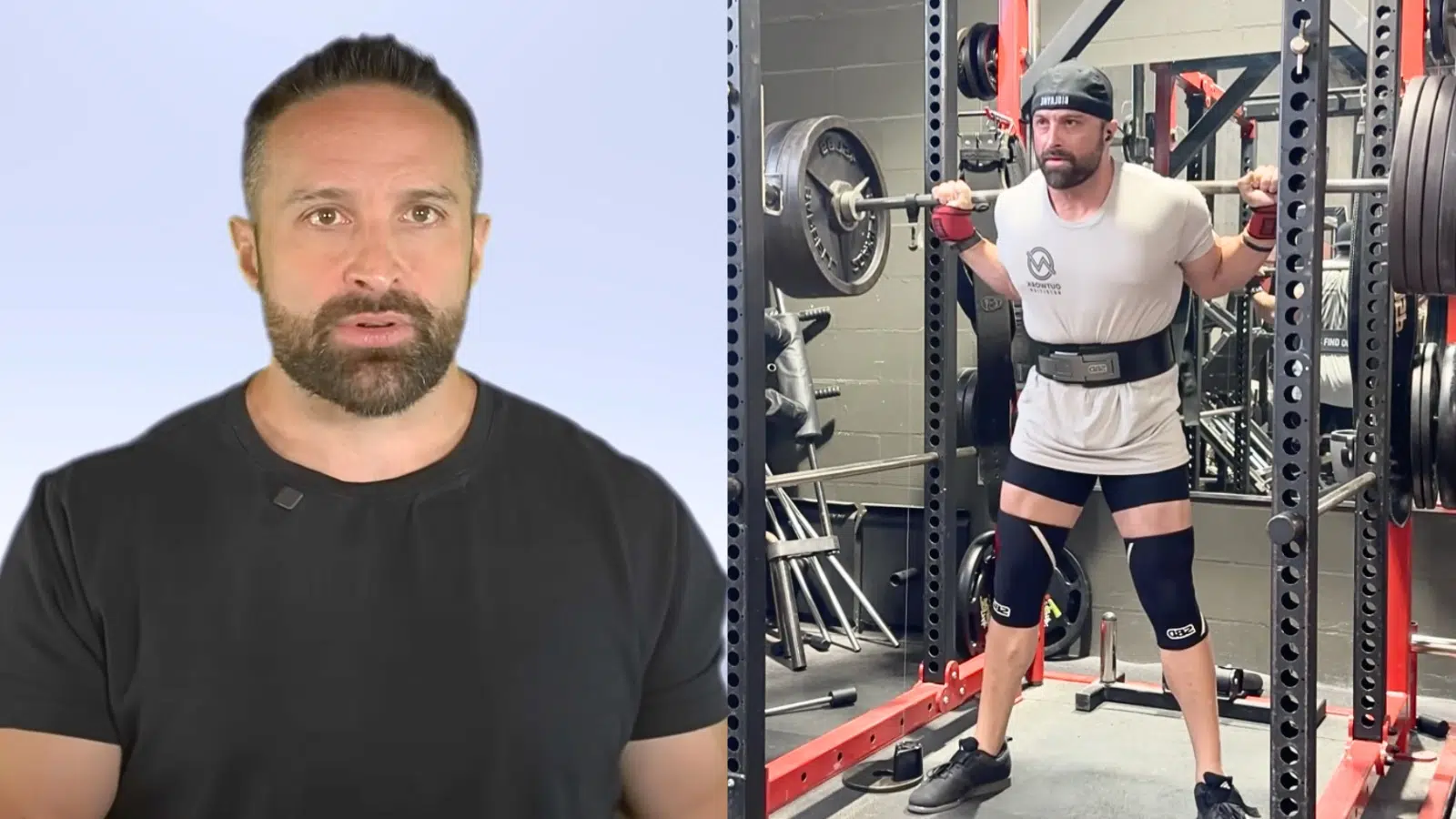As a multi-talented athlete, Dr. Layne Norton continues to provide evidence-backed information on weightlifting. In his latest effort, he revealed if slow or fast lifting can result in additional strength gains.
“This week, we are talking about slow lifting versus faster or normal lifting and its effects on strength.”
With over 399,000 YouTube subscribers, Dr. Norton has become a trusted resource in the fitness community, which often gets plagued with misconceptions. His opinions are backed up by on-the-ground experience, having tested himself at the highest levels of powerlifting. In addition, Norton has found success as a natural bodybuilding talent.
He wields extensive knowledge when it comes to training efforts, whether bodybuilding or powerlifting is on the table. Below, Dr. Norton explains how faster concentrics such as the pressing motion of a bench press, can actually result in more strength gains versus taking each rep slowly.
Dr. Layne Norton Breaks Down Science Behind Slow vs Fast Lifting for Strength Gains
First and foremost, Dr. Norton distinguishes the differences between concentric and eccentric muscle contractions.
“A new meta-analysis came out looking at concentric speed of lifting so when we say concentric, for example, if we’re doing a bicep curl the portion where the muscle is shortening that is the concentric.
The portion where the muscles is lengthening is the eccentric. So for example on the squat, where you’re going down, the quadriceps is lengthening, that is the eccentric, and where you are coming up when the muscle is shortening that is the concentric. ”
Outlining the study in question, Dr. Norton said the researchers defined a slow concentric as taking longer than two seconds whereas a fast concentric took less than two seconds to complete.
“They were looking at, does the speed of the concentric movement affect strength development. So, they defined slow concentric as concentrics taking more than two seconds to complete and they defined fast or they also called it traditional as taking less than two seconds to complete.”
The results were shocking after looking at over 600 participants: those who trained with slower concentrics didn’t get as strong as those who utilized faster concentrics.
“In all, there were over 600 participants that were evaluated and they did a lot of awesome sub-group analysis as well. The outcome of the study was people who trained with slow concentrics didn’t get as strong as people who trained with purposely faster concentrics.”
Next, Dr. Norton examined the physics behind the study, taking into account the weight of the load being lifted.
“This kind of makes sense when you think about it from a force development perspective. If you think about the force-velocity curve, a light load can still have a very high force applied to it if you go fast. But if it’s a light load and you’re applying a slow velocity to it, then there’s not as much force.”
He explained that those who practiced slower concentrics saw a reduction in strength compared to their counterparts but said it’s still possible to get stronger with them.
“Specifically for strength, they did see a reduction in strength development for people who did slow concentrics. Now, we don’t know what that means for the eccentric portion. If you do slow eccentrics, it may not negatively impact your strength because it’s possible that the concentric is the portion that is important for strength development.”
“It’s not like you can’t get stronger doing slow concentrics, you can. I think the raw numbers were you’d increase your strength on average by about 25 percent in these studies if they were doing faster concentrics whereas it was like 21 percent if they were doing slower concentrics. So they still got stronger but they just didn’t get as strong as they could have if they were doing faster concentrics,” said Dr. Layne Norton.
Aside from taking a deep dive into lifting weights fast or slow, Dr. Norton has delved into optimal nutrition. He has elaborated on the benefits and drawbacks of the carnivore diet and the ketogenic diet, offering insight thanks to years of experience in academia.
Try taking your repetitions a little faster the next time you’re at the gym. Norton believes repetitions completed in under two seconds will help you reap more strength gains in the end.
RELATED: Dr. Layne Norton & Bradley Martyn Discuss Sam Sulek’s and Liver King’s Steroid Use
Watch the full video from Dr. Layne Norton’s YouTube channel below:
Tip: If you're signed in to Google, tap Follow.









